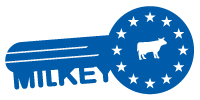Type of indicator
Quantitative
Relative dimension and aggregated criteria
Environmental sustainability: Potential loss of biodiversity
Description
The treatment frequency index is an indicator of phytosanitary treatment intensity and product management. This indicator is based on the amount of pesticides applied by farmers on their agricultural plots over the production year. For each phytosanitary product, a certified standard dose is defined per ha and crop type according to the product’s technical guidelines. This indicator gives the number of treatments equivalent to full rates and full field application. It is equal to 1 if the farmer uses the standard dose. This indicator is adapted from Aouadi (2011).
Indicator interpretation
Higher values indicate larger negative impacts on the environment
Indicator calculation
Σ𝑗(Σ𝑖(((𝐴𝑚𝑜𝑢𝑛𝑡 𝑎𝑝𝑝𝑙𝑖𝑒𝑑 𝑜𝑓 𝑃𝑃𝑖/𝐶𝑒𝑟𝑡𝑖𝑓𝑖𝑒𝑑 𝑑𝑜𝑠𝑒 𝑜𝑓 𝑃𝑃𝑖)∗(𝑡𝑟𝑒𝑎𝑡𝑒𝑑 𝑎𝑟𝑒𝑎/𝑡𝑜𝑡𝑎𝑙 𝑎𝑟𝑒𝑎))/𝑛𝑢𝑚𝑏𝑒𝑟 𝑜𝑓 𝑐𝑟𝑜𝑝𝑠 𝑗)
Where:
𝐴𝑚𝑜𝑢𝑛𝑡 𝑎𝑝𝑝𝑙𝑖𝑒𝑑 𝑜𝑓 𝑃𝑃𝑖= Amount of phytosanitary product i applied in crop j
𝐶𝑒𝑟𝑡𝑖𝑓𝑖𝑒𝑑 𝑑𝑜𝑠𝑒 𝑜𝑓 𝑃𝑃𝑖 = Certified dose of phytosanitary product i in crop j
𝑇𝑟𝑒𝑎𝑡𝑒𝑑 𝑎𝑟𝑒𝑎𝑖= Treated surface area by phytosanitary product i
𝑇𝑜𝑡𝑎𝑙 𝑎𝑟𝑒𝑎𝑗 = Total surface area of crop j
𝑇𝑜𝑡𝑎𝑙 𝑛𝑢𝑚𝑏𝑒𝑟 𝑜𝑓 𝑐𝑟𝑜𝑝𝑠 = Total number of crops on the farm
Unit
Score
Scale definition
| Reference values | Scales | Dexi interpretation | References | |
| Minimum of 0 | 0 | None | + | (Pelzer et al., 2012) based on European and French data collected from several arable crops
Scale built in a participative approach by scientists and experts |
| Maximum of 8 | [0; 2] | Low | ||
| [2; 4.5] | Medium | |||
| >4.5 | High | – | ||
References
Adapted from (Aouadi, 2011)
